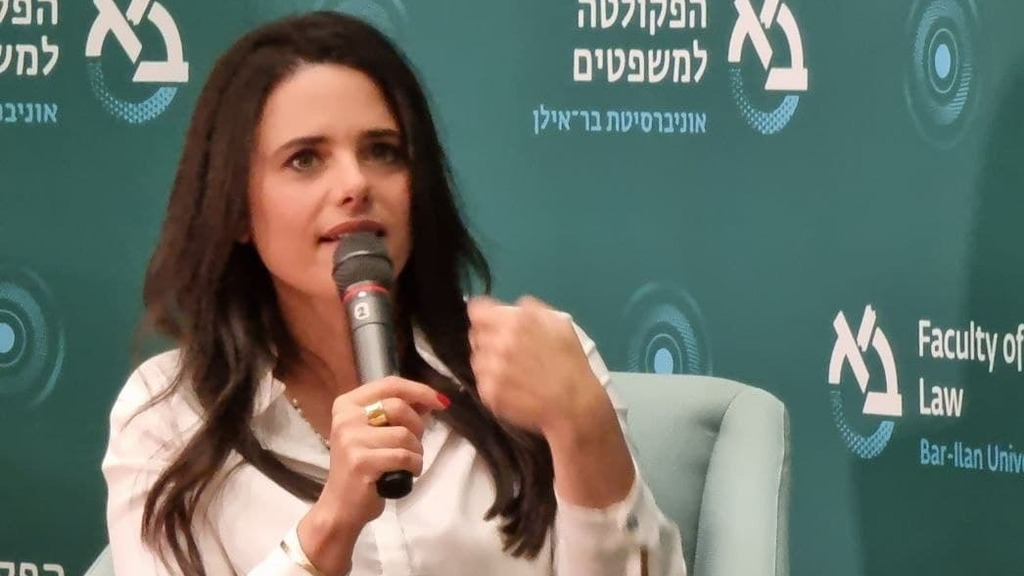While a record 30 women are on course to enter the 120-member Knesset, it appears female representation will ultimately remain roughly the same as in previous parliaments.
“It’s likely more women will get in [once a new government is formed] because of the ‘Norwegian Law’ that a minister can be replaced with a new MK, but for an Election Day, it’s a record,” says Michal Gera Margaliot, former executive director of the Israel Women’s Network.
5 View gallery


Labor leader Merav Michaeli is the only woman to head a political party in Israel
(Photo: Avigail Uzi)
Emily Schrader, research fellow at the Tel Aviv Institute and an Israeli political consultant, notes that this achievement is not so advanced when considering other factors.
“While 30 female MKs is the record [for the beginning of a Knesset session], it’s actually not an increase from the previous Knesset and it’s certainly not representative of 50% of the population," she says.
"I’m relieved to see that the number hasn’t dropped given how few parties are led by women, however we are far away from actual equality in representation,” Schrader says.
“Being 25% of the Knesset was a great step, a decade ago. … Women of all kinds belong at the decision-making table: religious, secular, Jewish and Arab.”
The two left-wing parties have the highest female representation, with Meretz at 40% and Labor, which is the only party with a woman leader, at 57.1%.
The ultra-Orthodox Shas and United Torah Judaism parties, with seven and nine projected seats respectively, do not allow women to run for Knesset.
Following UTJ and Shas, Yamina is set to have the worst female representation, at some 14.1% of its delegation. Female representation is about 16.7% for both Yisrael Beytenu and the Arab Joint List. The United Arab List includes 20% female representation, Blue and White 25% and Likud about 26%.
A third of the Religious Zionist Party, New Hope and Yesh Atid candidate lists are also women.
5 View gallery


United Torah Judaism leader Yaakov Litzman, left, and Shas head Aryeh Deri do not allow women to represent their parties in Knesset
(Photo: Alex Kolomoisky)
Dr. Yofi Tirosh, a gender equality expert at the Tel Aviv University Faculty of Law, argues that the ban on women in the Haredi parties is one of the reasons why female representation in the Knesset is so low.
“That’s 15 or 16 Knesset members, which is approximately 15%, that don’t allow women to take part,” Tirosh says.
“It’s unfortunately something that the Knesset allows and I think it’s a modern form of disenfranchisement to ban women.
“This is the kind of atmosphere where religious rights and piety are combined with a very extreme form of modesty where the very presence of a woman in the public sphere is an interference, impure,” Tirosh says.
“The idea of separation segregation of sexes is okay in Israel. Parts of the potential [Netanyahu] coalition we might see here, like the ultra-Orthodox parties and Religious Zionist, either actively promote segregated hours at public places, segregated driving courses, academic studies, military units, etc., or have been indifferent [toward the practice], like [the Yamina party of Naftali] Bennett and Likud,” she says.
“They just don’t care much about the issue; they let those who care about it get their way. It’s a trend very deep in Israeli society and it impedes women’s autonomy.”
This attitude, Tirosh says, has spilled over to the Knesset floor, with female legislators being admonished for immodesty and a Shas lawmaker asking a female Likud MK to be moved after she was assigned a seat next to him.
“He asked for them to switch her, which was shocking in itself, and what was more shocking was that the Knesset agreed,” Tirosh says.
According to Margaliot, it is no accident that Labor has the highest proportion of female Knesset representation.
“It’s the only party that built its list as a woman, man, woman, man, which is why four women got in; they have more women than men,” she says.
“Merav Michaeli has accomplished a major achievement: She took a party that everyone thought was finished and now she got seven mandates, which is more than many people dreamed of.”
Schrader agrees.
“I am… extremely happy that Labor exceeded expectations, as the only party led by a woman, and the only party with gender representation that reflects the population,” she says.
“Regardless of whether or not one agrees with her policies, Merav Michaeli has been a champion for women’s equality throughout her career and deserves a lot of respect for that and for living by her principles as a leader, which is something that’s lacking severely in political leadership.”
Margaliot argues it is not just important to look at the number of women elected, but also at their level of seniority.
A record seven significant parties entered into the election with women at the No. 2 spot, and they almost all made it into Knesset: Meretz, New Hope, Religious Zionist, Yamina, Blue and White, and Yesh Atid. The New Economy party was the sole one that failed to meet the 3.25 electoral threshold.
Margaliot also said Likud fares well in this regard.
“It’s the first time in Likud history that there are three women in the first 10 places, which is significant,” she says.
The third way Margaliot says representation needs to be scrutinized is how feminist the legislators are.
“It’s a parameter about women, but it’s also a parameter that we look at men, because we need strong allies to promote more feminist policies,” she says.
Reprinted courtesy of The Media Line




